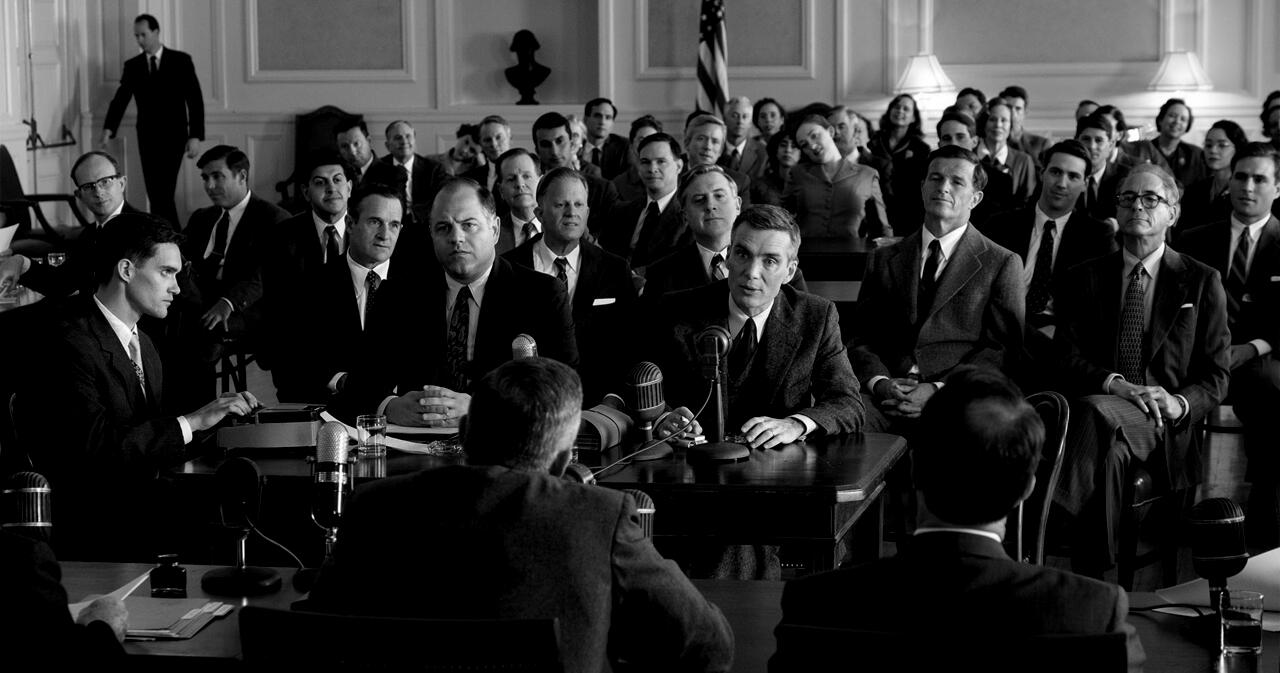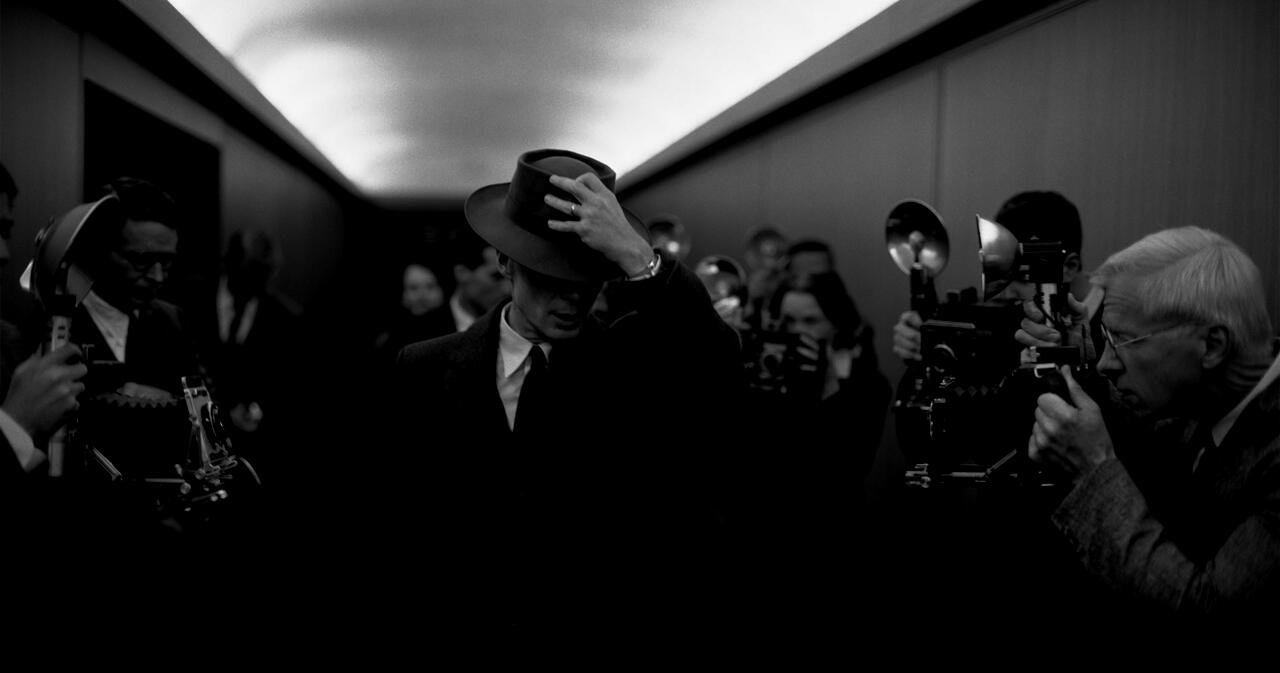Oppenheimer is not an easy film to write about after one viewing. It's a massive movie both in terms of its length and in terms of its intricately and painstakingly laid-out story, which defies all of Hollywood's rules for biographical and historical films. Christopher Nolan, as always, is doing things his way. And it's going to take the rest of us a minute to catch up.
Despite what you may have heard from some vociferous Batman fans, Christopher Nolan doesn't make perfect movies. Not because he screws them up, but because he only takes aim at targets that are immensely difficult to hit. The climactic "temporal pincer movement" of Tenet, for example, is incomprehensible and doesn't work--but it was also a paradoxical concept to begin with that might simply have been impossible to portray in live action. He took a big swing and he missed pretty hard, but how many other filmmakers would have even been able to try something like that? Not many.
By contrast to Tenet, a high-concept sci-fi action flick, Oppenheimer does seem a bit mundane. It's just a movie about the guy who ran the Manhattan Project that created the first atomic bomb during World War II. It's the most grounded subject matter he's ever had for a movie, but that didn't stop him from bringing the exact same intensity and epic feel that his action movies have.
Fortunately for Nolan and for us, the life of J Robert Oppenheimer included plenty of intrigue thanks to McCarthyist anti-communist witch hunts in the US government after World War II. The frame story is a hearing in 1954 in which an Atomic Energy Commission committee would interrogate Oppenheimer about basically his entire adult life--the FBI had been scrupulously following his every move for decades because he was friends with many registered members of the US Communist Party and even married one.

The film takes us from Oppenheimer's time in Europe learning from some of the great physicists in the 1920s--Niels Bohr, for instance, played by Kenneth Branagh with a Danish accent--up to and a bit beyond that 1954 hearing. The bulk of the focus is on the Manhattan Project itself--not just the struggle to build the bomb, but also the moral struggle that many scientists on the project, including Oppenheimer himself, had with what they were doing. Along the way, we meet a dizzying carousel of supporting characters.
But that's a pretty uncomplicated way to describe a very complicated movie. Beyond that frame story, this is not a linear film. From the very start, Nolan is jumping all over the timeline in pursuit of his bigger picture--and for most of the three hours that this movie lasts, I didn't really understand what he was going for. When I say it's jumping all over the place, I really mean it--there are times when it cuts a scene off midway and then comes back to it an hour later for the payoff.
But Nolan and editor Jennifer Lame knew what they were doing. Oppenheimer is painstakingly coherent. Every time I wondered about this dangling thread or that one while I was watching, there would be a follow-up to it not long after. It's a sprawling, three-hour movie with what feels like a hundred key supporting roles with their own plot threads, and every single one of them gets their own little payoff when the time is right.
But Nolan and Lame, with the help of composer Ludwig Goransson, also built a movie that plays like a song, and it's that quality that keeps the whole affair from becoming overwhelming. Three hours is a long time to sit in a movie theater, and all these characters can be tough to keep track of, but it doesn't feel like a chore at all when a film nails its vibe like this one does.

Cillian Murphy, playing the title role, is the centerpiece of that song. As an instrument, he hits all the right notes, but this is the sort of situation where it's hard to tell if he's actually giving a great performance or just doing a spot-on impression of the real J. Robert Oppenheimer. But it's a moot point, honestly, because Nolan harnesses the sound and texture of Murphy's voice so well as part of the overall aesthetic of the film. And he's in perfect harmony with that massive supporting cast, whether he's playing against a very intense Florence Pugh or a more laid-back Matt Damon.
In that sense, Murphy certainly gave the performance he needed to give for this movie to work. Whether that makes him worthy of the Oscar that he'll inevitably be nominated for is another question, but you won't hear me argue against it.
But even though it's Murphy's face on the poster, Oppenheimer is all about Christopher Nolan. This movie didn't need to be this long or this complicated. It would have been much easier to just do a standard studio flick in the style of Nolan, like Dunkirk.
But I'm glad Oppenheimer is this long and complicated, because I think Nolan actually succeeded at making the movie he set out to make. And I don't think that happens often for any filmmaker.